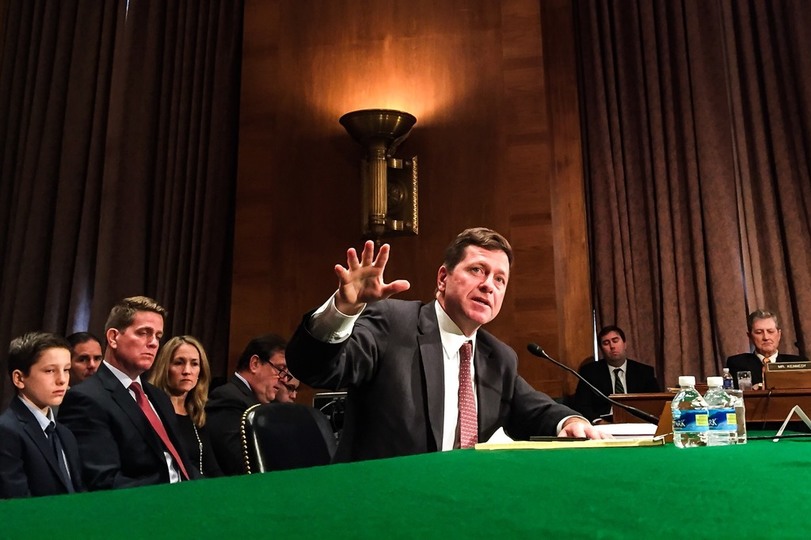
 SEC Chairman Jay Clayton. (Photo: New York Law Journal)
SEC Chairman Jay Clayton. (Photo: New York Law Journal)
SEC Chairman Jay Clayton told an auditorium filled with bankers and regulatory officials that "the amount of retail fraud that still goes on" makes him sick. "They're not aberrations," said Clayton, who was answering questions after giving a speech on the culture at financial institutions and the SEC.
There is currently "fertile ground for retail fraud," and the SEC is working on that, said Clayton.
He said the agency is reaching out to long-term retail investors, not through intermediaries, but directly, asking about how they want the SEC to spend its time. About 50% of U.S. households have exposure to the securities market, said Clayton.
In his prepared speech for the Federal Reserve Bank of New York conference on governance and culture reform, Clayton said that even the agency's role in overseeing institutional trading should be conducted in a way "that best serves the interests of long-term return investors. … Those institutions are holding and trading, in large part, the funds of retail investors. That perspective … should substantially inform how we can regulate trading."
The retail investor is central to several SEC initiatives begun under Clayton's leadership, which began in May 2017:
- The SEC Retail Strategy Task Force, formed last September to develop proactive, targeted initiatives to identify misconduct impacting retail investors
- SEC Cyber Unit, under the Enforcement Division, which focuses on market manipulation schemes through electronic and social media and intrusions into online retail brokerage accounts
- A Share Class Selection Disclosure Initiative, whereby investment advisors could report putting put their clients into high-fee share classes when lower fee options were available in the same fund without paying a penalty other than returning the overpayments to investors.
- Fixed Income Market Structure Advisory Committee, which focuses on disclosures of markups and markdowns of in corporate and muni debt markets, where individuals investors are key participants
- The SEC's best-interest proposal, which would require that broker-dealers put their clients' interest first, ahead of their own when recommending investments and strategists
The best-interest proposal, which is by far the most publicized of the lot, is more strict than the agency's current suitability rule for investments but not as strict and the Labor Department's fiduciary rule for retirement accounts. That rule is essentially dead since a federal appeals court threw it out and the Labor Department didn't appeal that decision.



